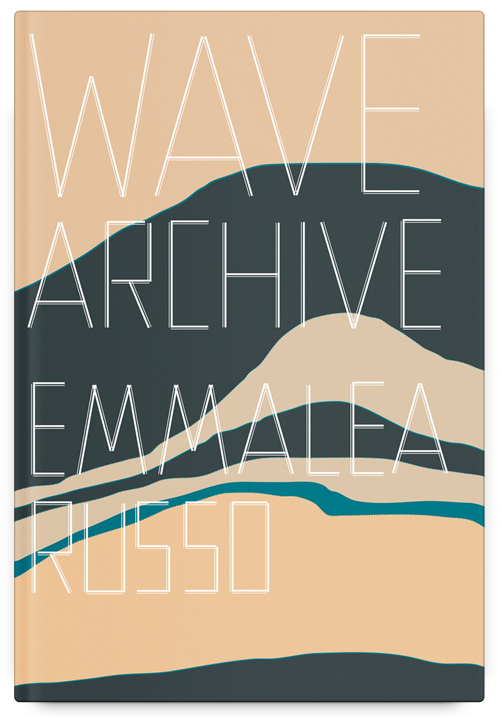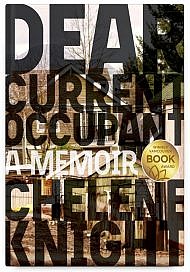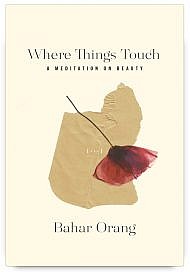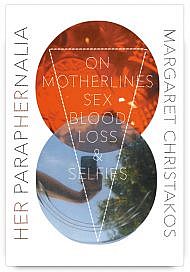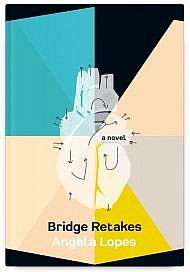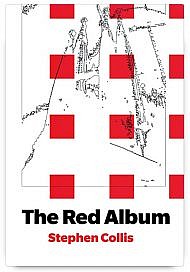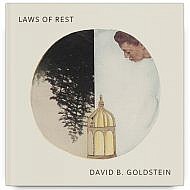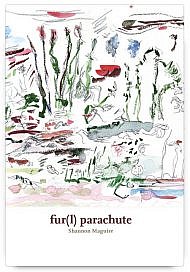Is it possible to archive the invisible symptoms of an illness? Is the archive emotional?
Emmalea Russo’s Wave Archive moves between essay and poetry while also pondering the mind-body connection and the unreliability of thought patterns and histories. Here, Russo invokes her own experiences with seizures, photographs and art-making, archival and indexical processes, brain waves, and the very personal need to document and store while simultaneously questioning the reliability of memory and language. Drawing upon the history of epilepsy in both ancient and modern brain treatments, Wave Archive disrupts and restores the archive over and over again, exploring the very edges of consciousness.
Watch the Book Launch and Reading:
Praise for Wave Archive:
“Plumbing a myriad of archives both personal and historical, Emmalea Russo’s Wave Archive is an exploratory foray into the nature of the author’s living with and attending to epilepsy. The book is as various and hard to pin down as the condition it explores: part catalogue of the mind and its internal and external functioning; part meditation on the process of artistic creation; part disjunctive lyric essay; part poetic reckoning with the language of Owsei Temkin’s 1945 history of epilepsy, The Falling Sickness; and part inscrutable literary alchemy all its own, an attempt to “touch the space between interior and exterior.” The thinking throughout is restless, resists pat conclusions, revels in movement. “It is raw material / but it shouldn’t look like / raw material to be used / it should look already activated / but also, at the same time, sleepy.” Following her own alchemical logic, Russo has forged an intrepid compartment, “an archive for the changes of the waves of the brain.” This archive is wild.”
—Daniel Owen, author of Restaurant Samsara
“This beautiful book moves in a way I’ve never before experienced, transforming the reader through its pages. Wave Archive seeks to articulate the incomprehensible, invisible processes of epilepsy, of art-making, of how we categorize the world, suggesting these forces are connected in dazzling ways we’ve yet to comprehend. It is ambitious, pleasurable, and startlingly original.”
—Kate Durbin, author of E! Entertainment
Press Coverage:
Read ‘In the Compartment’, an excerpt from Wave Archive —Poetry Society of America
“Moving seamlessly from the finely researched to the experiential, Wave Archive is precisely that, an accumulation of wave upon wave of Emmalea Russo’s thinking, being and responding through her researches upon and experiences around epilepsy.” —rob mclennan’s blog
38 Brand-Spanking-New Books You Have to Read ASAP —Cosmopolitan
Entering the Glitch: Emmalea Russo with Sarah Hicks —The Brooklyn Rail
“You could call Wave Archive a project book, if you like, but you could equally well call it a deconstructed memoir, or a set of sketches towards unwritten essays in verse. Mixed genres have rarely sounded so good, or described an idiosyncratic life so well.” —Stephanie Burt, The Yale Review
“Throughout Wave Archive, Russo teeters on a verge. The zone where symptoms meet self is a tenuous one, one that resists direct gaze, one that can be seen only in motion. This is the role of the restless motion of Russo’s poetry: it is always arriving at and being repelled from an edge, which is the only place the self, sick and all, can be seen from.” —Dennis James Sweeney, Full Stop
Emmalea Russo is the author of G (Futurepoem) and Wave Archive (Book*hug). She was a writer in residence at the Lower Manhattan Cultural Council and the 18th Street Arts Center (LA), and a visiting artist at the Art Academy of Cincinnati and Parsons School of Design. Recent writing has appeared in Artcritical, BOMB, The Brooklyn Rail, Cosmopolitan, Hyperallergic, and the Los Angeles Review of Books. Russo is a practicing astrologer and divides her time between Avon-by-the-Sea, NJ, and New York City.
Additional information
| Dimensions | 8.75 × 5.75 in |
|---|

